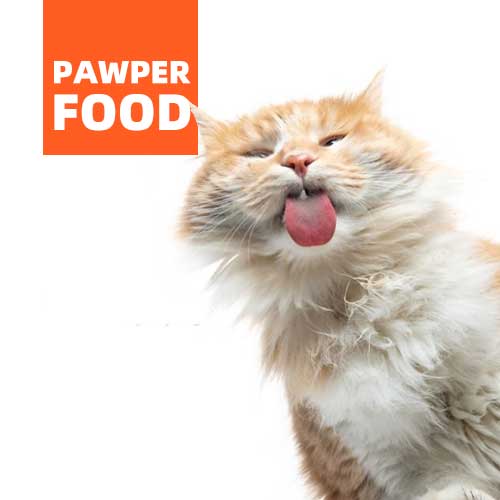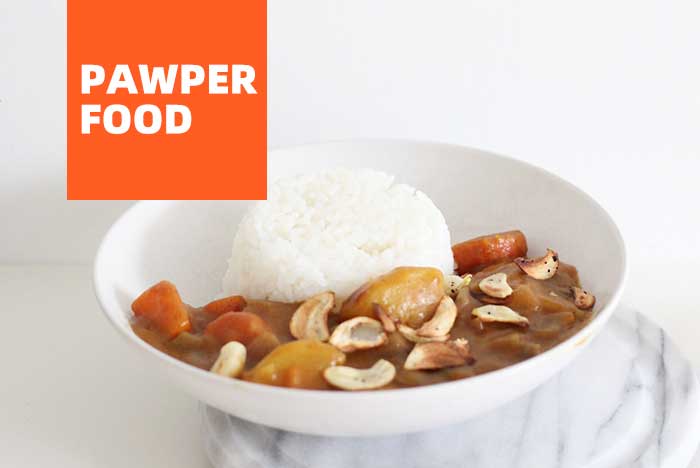White rice is a good carbohydrate source, which provides energy for the body.
It is not only low in fat and sodium, preventing high blood pressure and heart disease, but also gluten-free, which makes it suitable for people with celiac disease or gluten intolerance. To humans, of course.
I understand if you want to give your Maine Coon cat white rice. But can cats eat white rice? Is it safe or harmful for them? Or are there any benefits?
In this post, I will answer these questions and more, based on my experience and research.
Is White Rice Toxic for Cats?
The good news is that white rice is not toxic for cats.
It does not contain any ingredients that are poisonous or harmful to cats, such as chocolate, garlic, onion, grapes, or raisins.
White rice is also cooked and processed, posing no risk of bacterial contamination or parasites that raw rice may have.
So, if you want to treat your cat with white rice, go ahead.

However, this does not mean white rice is suitable for cats in the long term.
As obligate carnivores, cats need a diet high in protein and low in carbohydrates.
White rice mainly comprises starch, a carbohydrate that cats do not need and cannot digest well.
Feeding your cat too much white rice can cause digestive problems, such as diarrhea, constipation, gas, or bloating.
It can also lead to obesity, diabetes, or other health issues in the long term.

Therefore, white rice should not be a regular part of your cat’s diet.
It should only be given as an occasional treat or a temporary remedy for certain conditions, such as an upset stomach or diarrhea.
What Are the Nutritional Benefits of Rice For Cats?
White rice has some nutritional benefits for cats but is limited and outweighed by the drawbacks.
White rice is a source of energy, providing calories and glucose that can fuel your cat’s body and brain.
It also contains vitamins and minerals, such as thiamine (B1), niacin (B3), iron, and magnesium.
However, more nutrients are needed to meet your cat’s dietary needs.
White rice lacks many essential amino acids, fatty acids, vitamins, and minerals that cats require for optimal health and well-being.
For example, white rice does not contain taurine, a vital amino acid for cats that supports their heart, eye, and brain function.
White rice also does not contain arachidonic acid, a fatty acid involved in inflammation, immunity, and skin health.
Moreover, white rice has a high glycemic index (GI), which means it causes a rapid spike in blood sugar levels after consumption.
This can harm cats, especially those with diabetes or are prone to developing it. (Also to humans)
High blood sugar levels can damage your cat’s organs and tissues over time and cause complications such as kidney failure or blindness.
Therefore, white rice does not offer much nutritional value for cats.
It should only be given in small amounts and mixed with other foods more suitable for cats.
How Much White Rice Can A Cat Eat?
The amount of white rice you can feed your cat depends on factors such as age, weight, activity level, health condition, and dietary preferences.
There is no definitive answer to how much white rice is safe for cats, but a general rule of thumb is to limit it to 10% of your cat’s daily calorie intake.
For example, if your cat needs about 200 calories per day to maintain its weight (this may vary depending on your cat’s individual needs), then you can give it no more than 20 calories from white rice per day.
This translates to about one tablespoon of cooked white rice per day.
However, this is only a rough estimate and may not apply to every cat.
Some cats may tolerate more or less white rice than others.
Some cats may even refuse to eat white rice at all.
Therefore, you should always monitor your cat’s reaction to white rice and adjust the amount accordingly.
Can I Mix White Rice with Cat Food?
Yes, you can mix white rice with cat food if you want to treat your cat or help it with an upset stomach.
However, you should not replace your cat’s regular food with white rice, as this can cause nutritional deficiencies and health problems.
The best way to mix white rice with cat food is to use a high-quality, grain-free, wet cat food that is formulated for your cat’s life stage and health condition.
Wet cat food has more moisture and protein than dry cat food, which can help your cat stay hydrated and nourished.
Grain-free cat food contains no wheat, corn, soy, or other grains that can cause allergies or inflammation in some cats.
You can mix a small amount of cooked white rice with your cat’s wet food, ensuring the rice is not too hot or cold.
Add some water or broth to the mixture to make it more palatable and digestible for your cat.
You should not add salt, spices, sauces, or other seasonings to the rice, as these can harm your cat.
It would help if you only fed your cat this mixture for a short period, such as a few days or until your cat’s condition improves.
You should gradually transition your cat back to its regular diet by reducing the amount of rice and increasing the amount of cat food over time.
Brown Rice vs. White Rice
You may have heard that brown rice is healthier than white rice for humans, but is this true for cats as well?
Brown rice is a whole grain that retains all three parts of the rice kernel: the bran, the germ, and the endosperm.
White rice is a refined grain stripped of the bran and the germ, leaving only the endosperm.
Brown rice has more fiber, protein, vitamins, and minerals than white rice, which can benefit humans who need these nutrients.
However, cats do not need these nutrients from grains, as they can get them from animal sources.
In fact, brown rice can be harder for cats to digest than white rice, as it has more fiber and anti-nutrients that can interfere with digestion and absorption.
Therefore, brown rice is not necessarily better than white rice for cats.
Both types of rice have pros and cons for cats, and neither one should be a major part of their diet.
If you want to give your cat some rice, choose the type that suits your cat’s needs and preferences.
Can Cats Eat Rice to Help with an Upset Stomach?
One of the reasons why some people feed their cats white rice is to help them with an upset stomach or diarrhea.
White rice can act as a bland and binding food that can soothe your cat’s stomach and firm up its stool.
It can also provide energy and hydration for your cat when it is not feeling well.
However, white rice is not a cure-all for your cat’s digestive issues.
It may not work for every cat or every situation.
Some cats may have underlying causes of their upset stomach or diarrhea that need medical attention, such as infections, parasites, allergies, or diseases.
White rice may also worsen some conditions, such as constipation or diabetes.
Therefore, you should not rely on white rice alone to treat your cat’s upset stomach or diarrhea.
You should consult your veterinarian before feeding your cat anything new or different.
Your veterinarian can diagnose the cause of your cat’s problem and prescribe the best treatment plan for it.

What Foods Are Safe for Cats to Eat?
Some foods are good for cats, but some are bad or even dangerous. Follow our guide and give your cat the best food possible.
Safe Food For Your Cats






